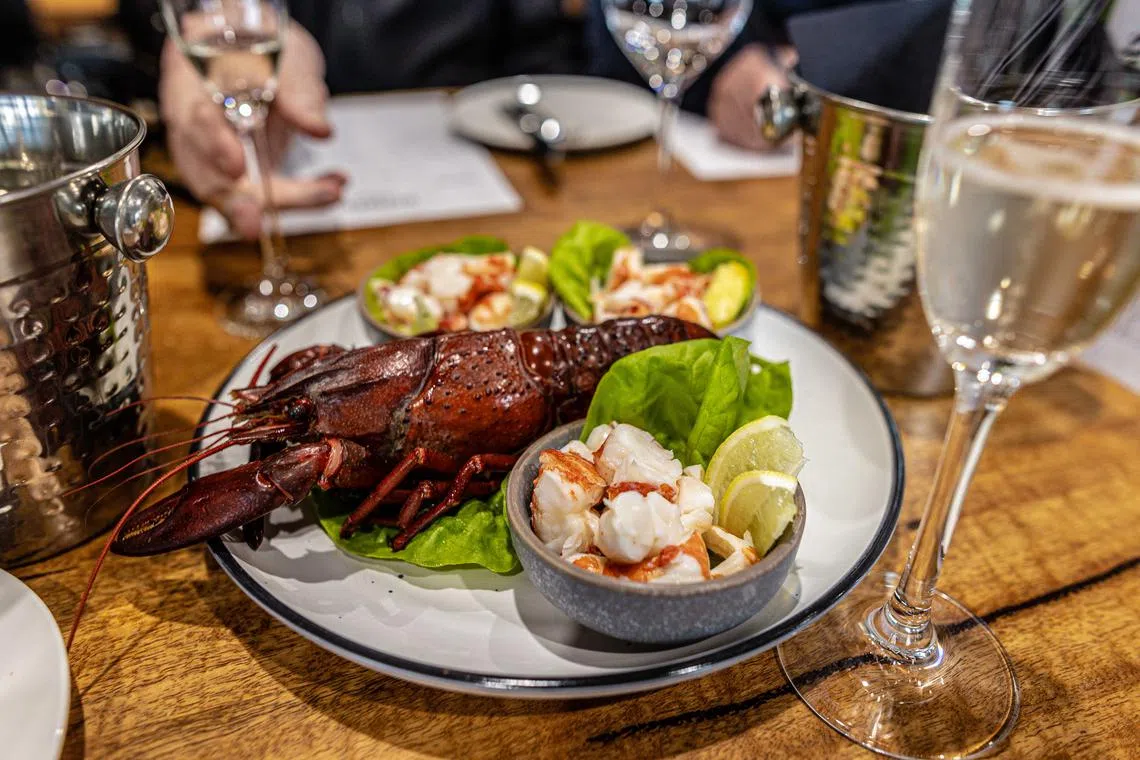Wine and lobsters could be next in China-Australia trade thaw
Sign up now: Get insights on Asia's fast-moving developments

China has imposed a raft of trade measures since 2020, blocking billions of dollars of commodity exports from Australia.
PHOTO; CASSANDRA CHARLICK PHOTOGRAPHY
SYDNEY – China’s trade restrictions on Australian wine, lobsters and other commodities could be the next to ease amid a warming of diplomatic ties and expectations that Beijing will soon resume imports of Australian coal.
China has imposed a raft of trade measures since 2020,
Those barriers appear to be easing as relations improve. Australian Foreign Minister Penny Wong visited Beijing in December to celebrate 50 years of bilateral diplomatic ties.
Chinese officials are now discussing plans to allow four major importers to resume purchases of Australian coal as early as April 1, Bloomberg reported this week, citing people familiar with the matter.
China Energy Investment Corp has already placed an import order, one of the first deals, Reuters reported.
On Friday, Australia’s Treasurer Jim Chalmers welcomed the reports. “We haven’t seen any confirmation of that, but that would be an incredibly welcome development were it to occur,” Mr Chalmers told reporters, when asked about Chinese interest in Australian coal.
“It would be in the interests of both countries to see these trade restrictions lifted,” Mr Chalmers added.
Curbs on commodity imports from Australia will probably be lifted gradually and in an unofficial manner, said Dr Hans Hendrischke, professor of Chinese Business and Management at the University of Sydney.
There is a great deal at stake as the China market accounts for about 40 per cent of Australian exports.
There’s a degree of confidence that the restrictions will be lifted, “but we don’t know when”, Dr Hendrischke said. “Nobody could tell you whether it will start with barley, wine producers or lobsters for Chinese New Year.”
Rock lobsters
While China never officially acknowledged the curbs on lobsters, a recent social media post from customs stoked expectations that the crustacean would once again be welcome.
In a report on the benefits of the Regional Comprehensive Economic Partnership, customs listed a range of Australian products that it said were attractive for consumers to purchase, including rock lobsters.
The wine industry will be very cautious before entering what was once its most lucrative export market, said Mr Lee McLean, chief executive officer of Australian Grape & Wine.
In the two years that China imposed tariffs of about 200 per cent on Australian wine, producers sought alternative markets, including the United States and Britain.
“Market diversification needs to continue,” he said. “We don’t want to get into a situation where we are too reliant on one market.”
A spokesman for Seafood Industry Australia said the group welcomes the positive sentiment from Beijing and Canberra, but declined to comment on prospects for lobster exports to China.
Even if all the commodity curbs are lifted, trade flows will probably remain subdued, said Ms Deborah Elms, executive director at the Asian Trade Centre in Singapore. “It’s not the government that trades, it’s individual firms. For companies, switching markets is not easy, fast or cost-free.”
Bloomberg, REUTERS


